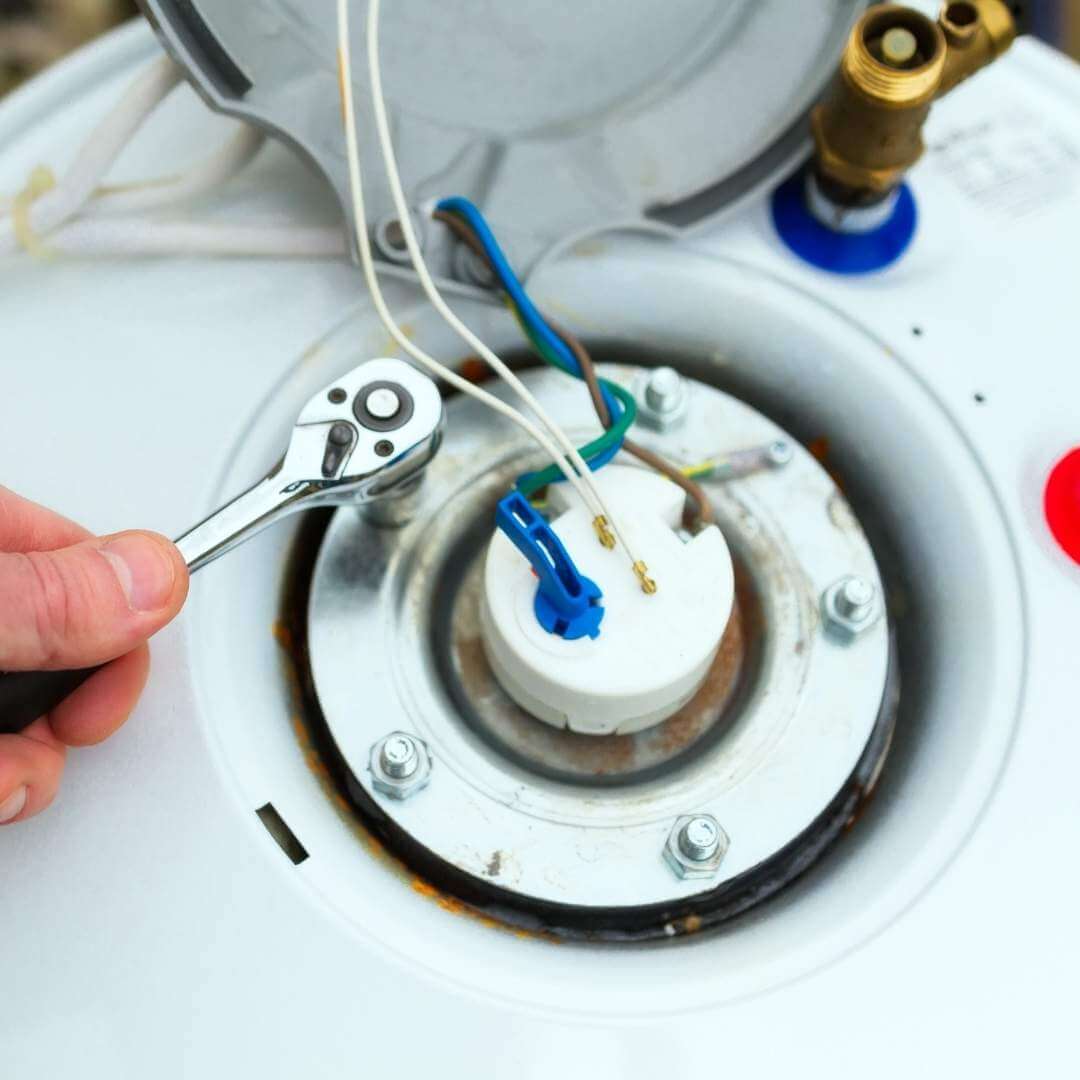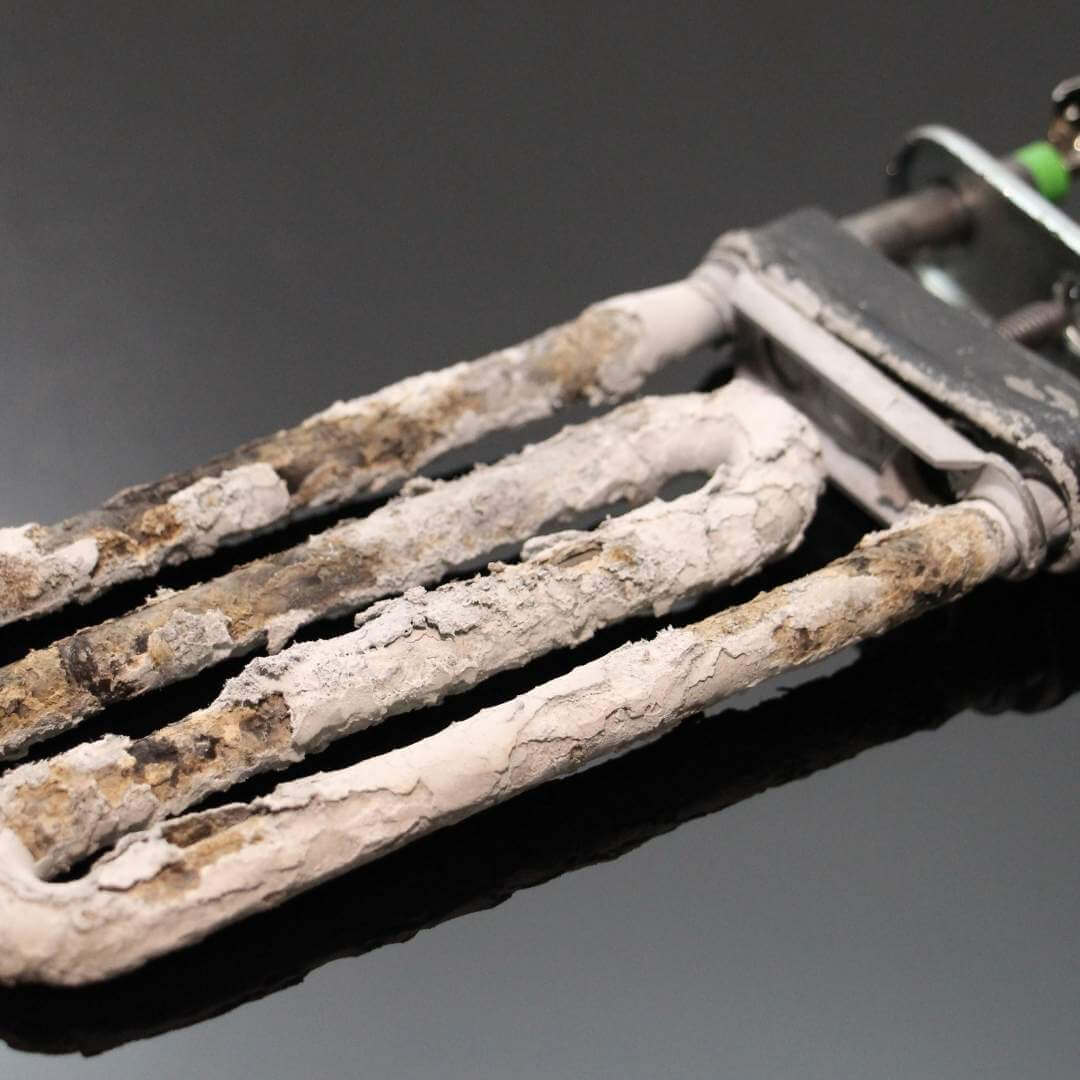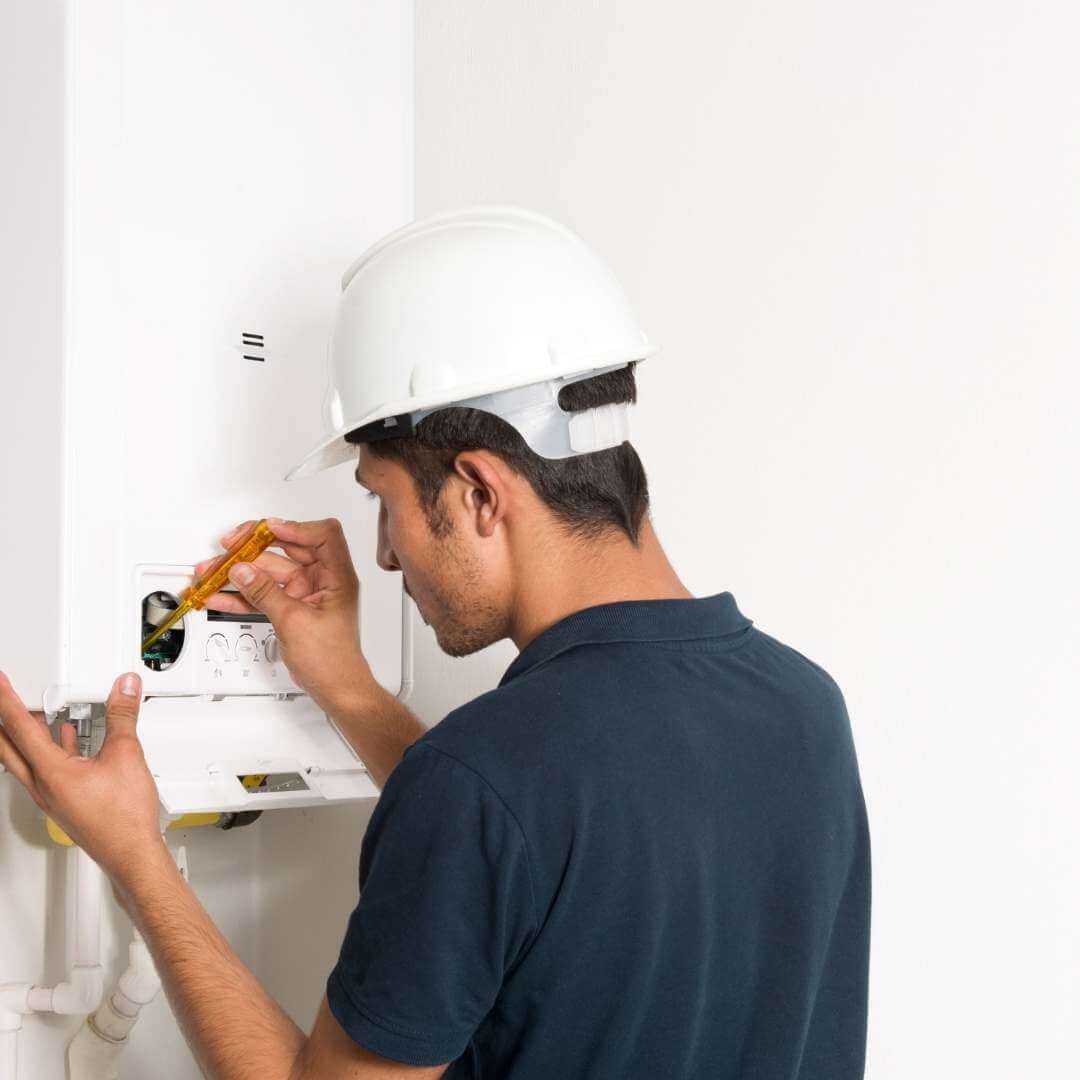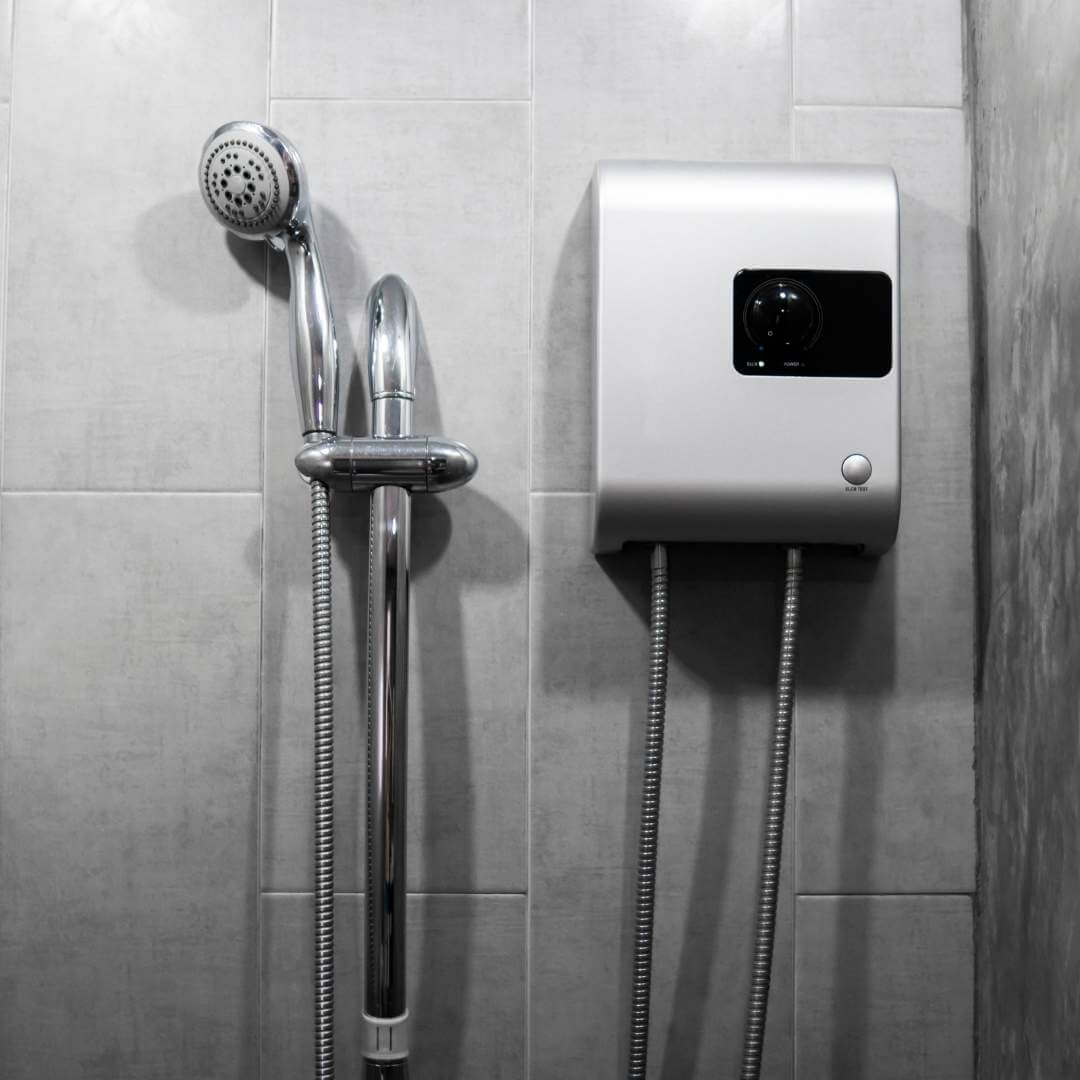A hot water heater is an appliance that most of us can not live without. It is responsible for supplying us with hot water in the kitchen and the bathroom. As long as the water heater is functioning normally, the less we have to think about it, the better. However, just like any other appliance in the home, the hot water heater too can obtain complications. Therefore it is beneficial to know the signs of failure when they occur. For instance, if your hot water heater smells like burning, you need to know how to address the problem.
Water Heater Smells Like Burning

A burning smell around the house is never a good sign as it can be a potential fire risk.
In most cases it can be a sign of an overheated or failing component. Even if a new hot water heater burning smell arises, never ignore the smell! Old or new, hot water heaters can develop a burning smell at any time.
There can be a few reasons why your water heater smells like burning, some not too serious. Nevertheless, it is best to understand why the smell originated and what to do about it.
4 Reasons Why Your Hot Water Heater Smells Like Burning

Keep in mind, it is always best to turn off the power source at the breaker before you try to find the origin of the burning smell around the house. [2]
- Rubber or plastic is burning
If your water heater smells like plastic or rubber, it might be that electrical contacts on the thermostat are overheating. These contacts are located outside the water heater.
Another component that might be overheating and burning can be the insulative coating on the wires. This usually happens if the insulation is old or not packed properly. As a result, the wires will come into contact with the heating element and overheat. [3]
The best solution to the problem is replacing the insulation or adjusting the plastic piece away from the heating element. If you are uncertain on how to do so, contact a professional to fix the problem for you.
- An electrical burn is in progress
In general, an electrical burn is not easy to smell as it is sometimes odorless. However, if an electric heater smells like burning, the odour is a relatively acrid smell of plastic burning.
It usually means that something electrical is overloading or that an electrical short has taken place in an outlet or wiring. It may be an overheated electrical contact or a fire rod failure.
When this smell is present around your water heater, it is best to check the wiring for arcing. If an overheated electrical contact is a problem, it means that heat is generated at the connections. If the fire rod is falling, the excess current will cause a short. Thus causing the wiring and thermostat to heat and emit an electrical burning smell.
Whatever the case may be if you notice an electrical burning smell, a trained professional needs to be called. A plumber will repair the wiring or advise you whether it is time to replace the water heater instead.
- Dust or debris are burning
Just like any other household item, your water heater will accumulate dust and debris. Therefore, you shouldn’t be surprised if you never clean your heater and suddenly the smell of burning dust appears.
When dust and debris accumulate on the water heater’s heating element, eventually, they will burn. While this is not necessarily a fire hazard, the smell is not pleasing.
Therefore, the best way to get rid of the smell is to take out the cleaning gear. Ensure to wipe down your water heater from dust and debris now and then to avoid the smell in the future.
- Air Pressure Problems
If your water smells like burnt plastic, there might be air pressure problems inside your water heater.
When a water heater is at work, it generates vapors released through an exhaust pipe. If the air pressure is not optimized, the vapors will remain inside the tank, which results in a home smelling like burnt plastic. In such a case, a plumber needs to be called to fix the air pressure in the water heater.
Other Smells Associated With a Hot Water Heater

- The water heater smells like gas
Whenever there is an odor like gas present in your home, it should be taken seriously. It is essential to trace where the smell is coming from immediately. Any appliance that uses gas can be the source. For example, if you have a gas water heater, check around the water heater area.
If your water heater is giving off the smell, it means that you have a gas leak. At this time, it is crucial to turn off the gas as soon as possible. Ideally, you should also air out the home and call a plumber or gas company right away. A professional will be able to fix the leaks and secure the water heater from further leaks.
If you do not know where to turn off the gas, get out and call the fire department! Gas leaks are hazardous and can cause someone to lose consciousness and even ignite a fire. Therefore in the case that your water heater is leaking gas, action should be taken immediately!
- The water heater smells like sulfur (rotten eggs-smell)
A rotten egg smell is the best way to describe the smell of sulfur. This kind of smell is a common occurrence in water heaters. While it’s not common for a new water heater to smell like burning, it can even happen that your new water heater smells like sulfur.
There can be two reasons for the smell to occur. It can either be due to a high sulfur-reducing bacteria in your water supply or a corroded sacrificial anode rod. [4]
If bacteria are the cause, the water heater will need to be flushed and disinfected. If an old anode rod is the only problem, then the rod needs replacement. Either way, to prevent the smell from returning, installing a zinc anode rod would be best.
Is It Time To Get A New Water Heater?

Frequent repairs can become very costly in the long run and is a sign of water heater failure. Therefore, if your water heater is giving you problems often, it’s probably time to get a new one.
One of the best options to consider is a high-efficiency water heater. A water heater like this is a good investment because it can maximize your home’s energy use and has many benefits.
Benefits to expect from a high-efficiency water heater:
- Low Cost of Energy – Most models use 50% less energy.
- Tax Benefits – Homeowners can apply for tax relief or rebate when purchasing a high-efficiency water heater.
- Eco-friendly – Most high efficient water heaters do not cause as much pollution as other water heaters do.
- Low Maintenance Cost – The latest technology means better performance. Thus these water heaters are low in maintenance.
- Convenience – Most highly efficient water heaters are small and compact, making them easy to install anywhere in the home.
Less Water Wastage – Tankless water heaters, for example, helps to reduce the consumption of water.
Durability – Many modern water heaters come with a warranty of over 20 years, which means they are very durable.
Variants of high-efficiency water heaters:
There are a variety of high-efficiency water heaters on the market today. Additionally, each water heater will either use gas, electricity, propane or natural gas. Here are the types that one can consider:
- Demand water heaters – A water heater without a storage tank that only heats water when needed.
- Storage water heaters – It contains an insulated storage tank.
- Heat pump water heaters – This water heater sucks warm air from the surrounding area to produce hot water in the storage tank.
- Solar-powered water heaters – A water heater like this heats water with sunlight through a solar thermal collector.
Conclusion
In general, good functioning water heaters should not give off any smells! So if your water heater smells like burning, it is a sure sign that something is not right. In most cases, a water heater will need technical expertise when it comes to repairs. Therefore it is best to call a plumber to investigate the problem.
A water heater that is at the end of its lifespan would probably need replacing. When shopping around for a new water heater, it is best to look at high-efficiency water heaters. These kinds of water heaters will not only benefit you in the long run but the environment as well.

Michael Davis is a heating & plumbing expert who currently works as independent contractor in SC. He also writes for Plumbertip.
For almost 10 years he worked on various plumbing tasks across South Carolina.


